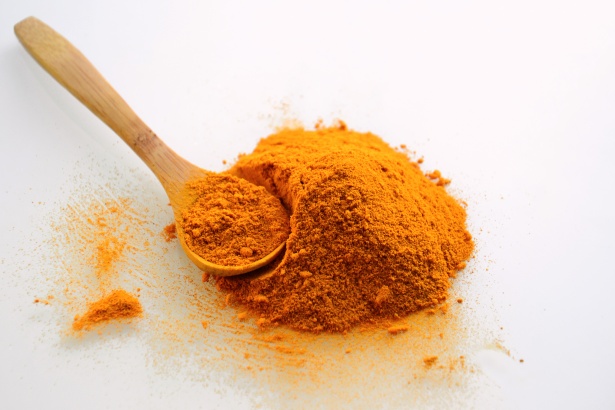Counsel & Heal Buzz
Natural Ways to Improve Your Gut Health

(Photo : Natural Ways to Improve Your Gut Health)
A lot of the things we thought we knew about health and especially gut health have turned out to be wrong or misguided.
For example, while many people routinely took medications like Zantac, we now know those could do more than good in a number of ways. Along with having an ingredient linked to a greater risk of cancer, taking medicines that interfere with stomach acid can make it hard for your body to break down and absorb nutrients.
We're also learning about the associations between gut health and so many other chronic physical and mental illnesses.
The gut is now even being called the second brain because of the complex connections it has to your mental health.
The following are some of the things that are important to know about gut health and how to naturally improve it for better overall wellness.
What is the Gut Microbiome?
Our guts are very complex, but at one point, we viewed the digestive system as simple.
Now, you may have heard the term gut microbiome. This refers to the many microorganisms that live throughout your intestines. For example, there are anywhere from 300 to 500 species of bacteria in any given person's digestive tract.
That bacteria is extremely important to our health. When you have a wide variety of good gut bacteria, you may notice not just fewer gut symptoms but also a better immune system, reduced depression and a lower risk of obesity.
Signs of Good vs. Bad Gut Health
The signs of a healthy gut usually include a bowel movement that occurs one to three times a day that's easy to pass and well-formed.
When you have a healthy gut and a well-functioning digestive system, you shouldn't be reactive to any particular foods or environmental factors.
The signs of an unhealthy gut, on the other hand, can include:
-
Stomach discomfort such as diarrhea, bloating, gas, abdominal pain, and constipation. You may have something called irritable bowel syndrome or IBS, which affects the large intestines and is often due to an imbalance in gut bacteria.
-
Fatigue can be associated with gut problems.
-
If you have numerous food cravings, it might be a sign of too much bad bacteria.
-
Changes in weight that aren't intentional
-
Skin irritation.
-
Allergies
-
Autoimmune conditions
-
Mood issues or symptoms of anxiety and depression
-
Migraines
-
Sleep issues
So how can you create balance in your gut naturally and restore your health?
General Health Tips
There are a few general things you can do to get started on a path to better gut health, including:
-
Be careful about taking antibiotics and don't take them unnecessarily.
-
Include natural probiotics in your diet like kombucha and kimchi.
-
Eliminate or at least cut back on processed foods.
-
Stay hydrated.
-
Eat fresh foods like fruits and vegetables and lean protein.
Beyond these general tips, there are some more specific tips to follow as well.
Eat Diverse Foods
Even if you think you're eating a healthy diet, so many of us get into a routine where we're eating the same things over and over again.
In order to have a healthy gut, the hundreds of species of bacteria in the intestines need to be fed properly. The more species of good bacteria you have in your gut, the better.
Try to step out of your comfort zone and eat new and diverse healthy foods each week. This can help create and support a diverse microbiota.
Have Fermented Foods
Fermenting foods involves bacteria or yeasts turning the sugar in food to alcohol or organic acids. Healthy fermented foods to try and regularly eat include tempeh, yogurt, kefir, kombucha, and sauerkraut.
You can modify your intestinal bacteria, and fermented foods might even help reduce symptoms of lactose intolerance if that's something you struggle with.
Have Prebiotics
You might know a fair amount about probiotics but less about prebiotics. Prebiotics are foods that help your body grow beneficial microbes.
Fruits, vegetables, and whole grains often have prebiotics, or you can take them in supplement form.
Research has found that in addition to help your gut health and promoting the growth of healthy bacteria, prebiotics can reduce insulin and cholesterol levels and may reduce risk factors for chronic illnesses like diabetes and heart disease.
Cut Back On Real and Fake Sugar
Both real sugar and artificial sweeteners are detrimental to the health of your gut.
First, high sugar foods can eliminate the good bacteria in your gut. Then, there's an imbalance which can lead to more sugar cravings; therefore, you'll keep experiencing a cycle of gut damage.
When you consume too much sugar, and the beneficial bacteria is diminished a great deal, it can lead to dysbiosis. That then causes damage to your intestinal mucosal barrier.
Sometimes this is referred to as leaky gut. With so-called leaky gut, an inflammatory immune response may be triggered, which can cause far-reaching health effects.
Artificial sweeteners aren't good either when you're talking about the health of your intestines.
Consider Intermittent Fasting
If you can block out windows of time each day or week where you fast, it might help your gut. Your gut needs a break from the constant work of digesting food, yet we're often trained to think we should be eating consistently.
After you digest food, your body needs to heal.
Even just avoiding nighttime snacking after dinner can help your gut get some time off.
Talk to a Naturopath About Your Diet
If you really feel like your gut health is suffering, a good source of information might be a naturopath who can help you get on a diet that will allow you to identify the foods that cause your symptoms.
One type of fairly rigid elimination diet that works well for a lot of people is the autoimmune protocol diet.
With this diet, you cut out many types of foods that are linked to poor gut health, including gluten, nightshades, coffee and alcohol.
Gradually you might reincorporate some of those foods back into your diet, but only after ensuring that they aren't a trigger for you.
* This is a contributed article and this content does not necessarily represent the views of counselheal.com









Join the Conversation